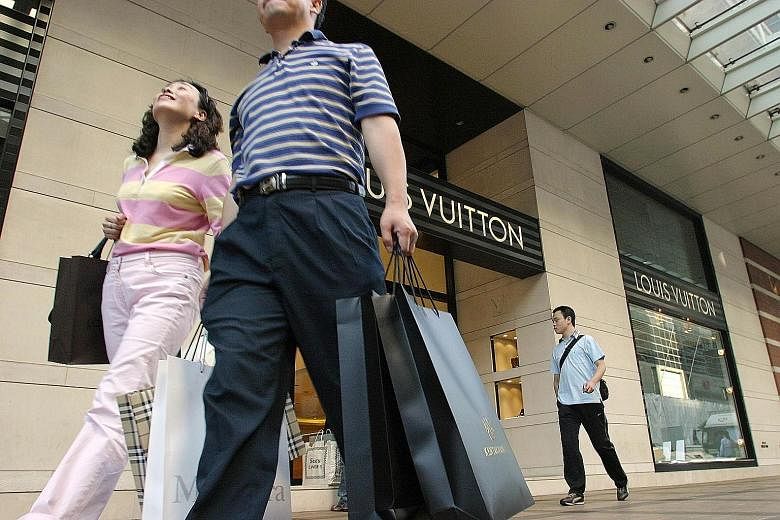China's share market plunge and currency devaluation have not resulted in Chinese shoppers cutting back their spending on luxury goods as had been feared, a top-ranked HSBC analyst said this week.
Mr Erwan Rambourg, HSBC's Global co-head of consumer and retail, said the declines in stock prices and in the yuan need to be put in context.
"The Shanghai composite index has been down roughly 40 per cent since its peak. On a 12-month view, if you had invested 12 months ago, you would still be up about 30 per cent," he said.
And while the yuan's devaluation of about 2 per cent last month instantly made everything more expensive for travelling Chinese shoppers, the currency is still up in value relative to the euro compared with last year, he noted.
"Purchasing power of the Chinese in Europe is still a lot stronger today than it was just 12 months ago," said the Hong Kong-based Mr Rambourg, who has been covering the luxury and sporting goods sectors for 10 years.
"The reason we look at euro-yuan and not (the US) dollar-yuan is because Chinese consumption abroad is mostly taking place in continental Europe, places like France and Italy. So obviously I don't see that as a big negative."
It is the appreciation of the euro that could be a bigger issue than the decline in Chinese equity markets, Mr Rambourg said.
He said the recent correction of the equity markets in Asia "has had a much bigger impact on Hong Kong than it has had on mainland China".
Reuters reported last month that Hong Kong retail turnover fell for the fifth straight month in July, as a slowdown in tourist arrivals further battered sales of big-ticket items such as jewellery and watches, while a plunge in the stock market hurt consumer sentiment.
Mr Rambourg believes that luxury sales fell in Hong Kong because Chinese spenders have moved to more "fashionable" destinations such as Japan, South Korea and Taiwan.
HSBC Global Research's latest report estimated about 70 per cent of luxury revenue in Hong Kong comes from Chinese consumers.
One of the issues in Hong Kong and Macau is the lack of diversity - Hong Kong is all about shopping, Macau is all about gaming, and there is not a lot that is offered beyond that, said Mr Rambourg.
But when Chinese tourists go to Japan, they return home to tell people about the culture, creating a snowball effect which goes beyond just the price arbitrage, where some destinations become fashionable and other destinations become less fashionable.
About 10 per cent of luxury revenue in Japan now comes from Chinese tourists and Mr Rambourg believes this figure will rise as it did in South Korea, which saw an increase from 10 per cent to 30 per cent.
About 25 per cent of luxury revenue in Singapore comes from Chinese tourists.
Mr Rambourg suggested that Singapore should look at providing more diversity in terms of the brands represented here in order to draw in more Chinese shoppers.
While there will be ups and downs, he foresees Chinese consumers becoming dominant over the next decade.
About 35 per cent of today's luxury consumers come from China and the figure could double over the next 10 years, he said.



